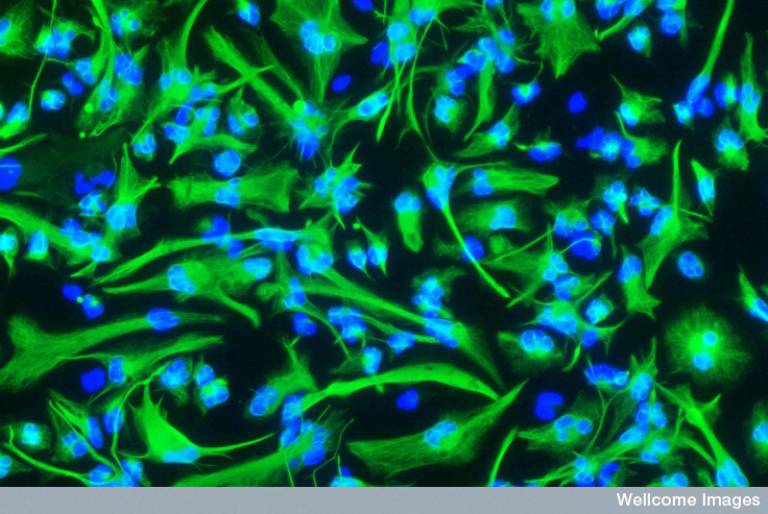UCL Cancer Institute Seminar Series
01 December 2016, 12:00 pm–1:00 pm

Professor Steven Pollard, MRC Centre for Regenerative Medicine, University of Edinburgh, presents: Transcriptional control of neural stem cell self-renewal: a therapeutic target for glioblastoma?
Event Information
Location
-
UCL Cancer Institute, Paul O'Gorman Building
Cells that have molecular hallmarks of neural stem cells drive human brain cancers, such as glioblastoma. A full understanding of the molecular and cellular events that control neural stem cell fate may therefore reveal new therapeutic strategies to treat this devastating disease. We are exploiting the latest experimental tools of molecular and cellular biology to address the following questions: How do neural stem cells make the decision to make more copies of themselves (self-renew), or become specialised (differentiate)? Why do brain tumour stem cells display unconstrained self-renewal? Are those genes and pathways that initiate and maintain neural stem cell identity useful therapeutic targets for glioblastoma? Can we identify new drugs that can specifically block self-renewal of brain tumour stem cells?
Hosted by: Professor Paolo Salomoni
The seminar will be followed by a sandwich buffet lunch
Selected Publications
Caren H, Stricker SH, Bulstrode H, Gagrica S, Johnstone E, Bartlett TE, Feber A, Wilson G, Teschendorff AE, Bertone P, et al.: Glioblastoma Stem Cells Respond to Differentiation Cues but Fail to Undergo Commitment and Terminal Cell-Cycle Arrest. Stem Cell Reports 2015, 5:829–842.
Stricker SH, Feber A, Engstrom PG, Carén H, Kurian KM, Takashima Y, Watts C, Way M, Dirks P, Bertone P, et al.: Widespread resetting of DNA methylation in glioblastoma-initiating cells suppresses malignant cellular behavior in a lineage-dependent manner. Genes & development 2013, 27:654–669.
Pollard SM, Yoshikawa K, Clarke ID, Danovi D, Stricker S, Russell R, Bayani J, Head R, Lee M, Bernstein M, et al.: Glioma stem cell lines expanded in adherent culture have tumor-specific phenotypes and are suitable for chemical and genetic screens. Cell Stem Cell 2009, 4:568–580.
For further information, go to http://www.crm.ed.ac.uk/research/group/neural-stem-cells-and-brain-cancer
Location
Courtyard Café
UCL Cancer Institute
Paul O'Gorman Building
London, WC1E 6DD
Contact: Veronica Dominguez v.dominguez@ucl.ac.uk
This seminar has been part-sponsored by Merck, the Biomedical Research Centre and Cancer Research UK
Image: Wellcome Images, brain cancer stem cells.
Image credit: Steven PollardView
 Close
Close

